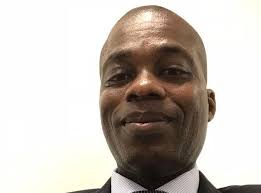Research Fellow at the Centre for Democratic Development (CDD-Ghana), Dr Kwame Sarpong Asiedu asserts that Ghanaian society has not yet fully addressed the issue of emergency management.
According to Dr Asiedu, the country's healthcare emergency system must be adept at managing crises—knowing when, how, and what actions to take during emergencies, which often require immediate and decisive intervention.
In an interview with Joy FM’s Super Morning Show on Tuesday, Dr Asiedu highlighted the critical gaps in public awareness and education regarding emergency response. “I ask myself, does the average Ghanaian know how to identify an emergency? As a society we have not scratched the surface of emergency management. For instance, if someone is having a stroke, are we educating citizens to recognise the signs and respond appropriately? Do they know when to call an ambulance, how to perform CPR, and what emergency equipment is available in their community? Can they effectively communicate with the ambulance team and provide crucial information about the emergency until help arrives?" he questioned.
Dr Asiedu emphasised the importance of swift action in emergencies, noting that, "In the UK, the average ambulance response time is four minutes. They have rapid response teams using cars that aim to arrive within one minute and thirty seconds, and these teams are highly skilled. They rush to the emergency scene to provide immediate assistance."
He also stressed the collective responsibility in emergency management, saying, "We should not leave this solely to the National Ambulance Service. We are all involved when it comes to emergencies. Healthcare is a vocation, and skill is essential. If people have not had training in the last two years, what will happen? This is a concern the state must address.”
Dr Asiedu pointed out that many emergency practitioners in Ghana have not received standard training in recent years, based on official state documents.
He warned, "If someone is being transported to an emergency facility where most practitioners haven't had recent training and lack guidelines, the issue becomes a mix of problems.”
In conclusion, Dr. Asiedu called for a comprehensive approach to emergency management, involving public education, regular training for healthcare professionals, and a coordinated effort to improve the overall emergency response system in Ghana.
Latest Stories
-
Over 80 educational projects to be commissioned this week
2 hours -
Kuami Eugene shows leadership; mobilises fellow artistes for peace song
4 hours -
The JOY Prime Made in Ghana Fair: Why not miss it!
4 hours -
GPL 2024/25: Struggling Asante Kotoko aim to bounce back against high-flying Nations FC
4 hours -
GES Deputy D-G admonishes students to uphold integrity and teamwork
5 hours -
Election 2024: Osabarima Dr Owusu Beyeeman advocates for peace
5 hours -
Fashion at Joy Prime Made in Ghana Fair
7 hours -
Alan Kyerematen wanted me to be his running mate – Okyeame Kwame
7 hours -
AFCON 2025Q: Otto Addo calls up Jerry Afriyie, two others for Niger clash
9 hours -
Vacant Seats: Supreme Court failed to strengthen Ghana’s democracy – NDC’s Beatrice Annan
9 hours -
Coop Kee makes bold statement with ‘Ohemaa’
9 hours -
Judiciary not a rubber stamp for Jubilee House decisions – Atta Akyea asserts
10 hours -
Judiciary being manipulated by politicians – Franklin Cudjoe claims
10 hours -
NPP slams ‘unwarranted and disgraceful’ attacks on Kufuor
10 hours -
Election 2024: Dampare cautions public against electoral misconduct
10 hours

